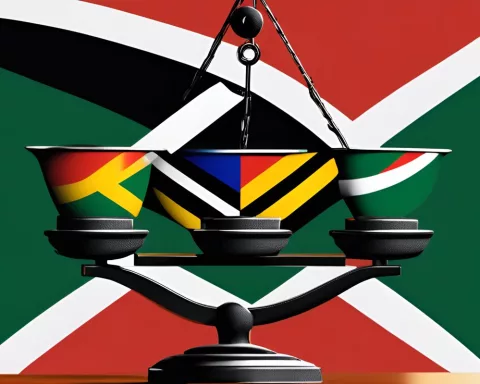South Africa, a country grappling with numerous challenges, has raised concerns about the political settlement established in 1994 to dismantle apartheid. Nelson Mandela is the face of this settlement, and his legacy has come under scrutiny in recent times. The African National Congress (ANC) claims that the settlement was a “sell-out” to “white monopoly capital,” while some believe that the ANC is responsible for the state’s failure. Dissatisfaction among black graduates and the unemployed masses also fuels criticism of Mandela’s legacy, as they struggle to find work and meet basic needs.
However, Mandela remains a revered figure among whites, who have mostly prospered since apartheid ended. Therefore, social scientists and historians must critically examine Mandela’s legacy to understand its multidimensional impact on South Africa.
Reanalyzing Mandela’s Role
Historians regularly reassess the roles political leaders play, and this poses challenges for Mandela’s biographers. Several significant biographies analyze various aspects of Mandela’s life, providing insights into his legacy.
Preventing Total Civil War
Mandela played a crucial role in preventing total civil war during the 1990-94 transitional period. His initiation of negotiations with the apartheid regime while imprisoned, independent of the ANC, is considered a critical factor in averting an even more brutal conflict.
Asserting his Authority
Mandela cleverly asserted his authority within the ANC. Despite the organization’s doubts about his motivations and decisions, Mandela’s strategic loyalty to the ANC and advocacy for negotiation with the apartheid regime cemented his leadership position.
Navigating Negotiations
Mandela skillfully navigated the negotiations that led to South Africa’s democracy. His keen judgment of when to pressure the regime for concessions and when to adopt a conciliatory approach was vital for securing progress toward the new constitution.
The Cornerstone of South Africa’s Constitutional Democracy
While the claim that South Africans negotiated the world’s finest constitution is now seen as exaggerated, it remains the cornerstone of the country’s constitutional democracy. Despite the ANC’s subversion and undermining of the constitution’s safeguards, it continues to serve as the foundation for political accountability, as demonstrated by various Constitutional Court rulings against the government.
A Dedication to Reconciliation
Critics argue that Mandela’s efforts to appease the white population went too far. However, others contend that his dedication to reconciliation was essential for establishing democracy and creating a united nation, as the alternative would have been far more disastrous.
The Evolving Legacy of Mandela
Mandela’s legacy will continually evolve, reflecting South Africa’s ongoing journey. If the nation becomes a “failed state,” as some predict, the constitutional settlement that Mandela played a pivotal role in establishing will require reevaluation. Nonetheless, Mandela’s enduring legacy remains a beacon of hope for those who believe in constitutional democracy.












